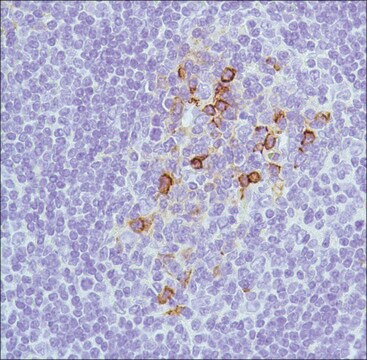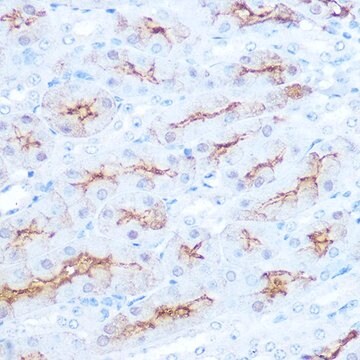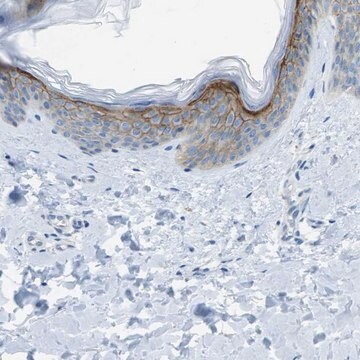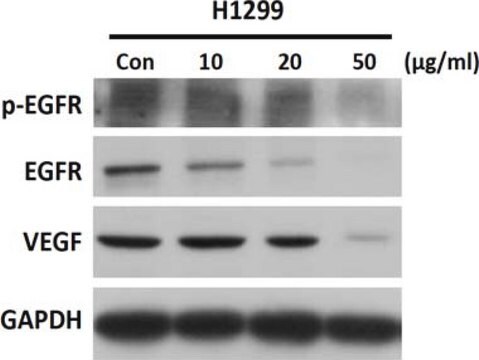138M-1
CD138/syndecan-1 (B-A38) Mouse Monoclonal Antibody
About This Item
Polecane produkty
pochodzenie biologiczne
mouse
Poziom jakości
100
500
białko sprzężone
unconjugated
forma przeciwciała
culture supernatant
rodzaj przeciwciała
primary antibodies
klon
B-A38, monoclonal
opis
For In Vitro Diagnostic Use in Select Regions (See Chart)
Postać
buffered aqueous solution
reaktywność gatunkowa
human
opakowanie
vial of 0.1 mL concentrate (138M-14)
vial of 0.5 mL concentrate (138M-15)
bottle of 1.0 mL predilute (138M-17)
vial of 1.0 mL concentrate (138M-16)
bottle of 7.0 mL predilute (138M-18)
producent / nazwa handlowa
Cell Marque™
metody
immunohistochemistry (formalin-fixed, paraffin-embedded sections): 1:25-1:200
izotyp
IgG1
kontrola
tonsil
Warunki transportu
wet ice
temp. przechowywania
2-8°C
wizualizacja
membranous
informacje o genach
human ... SDC1(6382)
Powiązane kategorie
Opis ogólny
Jakość
 IVD |  IVD |  IVD |  RUO |
Powiązanie
Postać fizyczna
Uwaga dotycząca przygotowania
Inne uwagi
Informacje prawne
Nie możesz znaleźć właściwego produktu?
Wypróbuj nasz Narzędzie selektora produktów.
Kod klasy składowania
12 - Non Combustible Liquids
Klasa zagrożenia wodnego (WGK)
WGK 2
Temperatura zapłonu (°F)
Not applicable
Temperatura zapłonu (°C)
Not applicable
Certyfikaty analizy (CoA)
Poszukaj Certyfikaty analizy (CoA), wpisując numer partii/serii produktów. Numery serii i partii można znaleźć na etykiecie produktu po słowach „seria” lub „partia”.
Masz już ten produkt?
Dokumenty związane z niedawno zakupionymi produktami zostały zamieszczone w Bibliotece dokumentów.
Powiązane treści
Diagnostic immunohistochemistry overview highlights its importance in cancer diagnosis and detecting infectious diseases in modern clinical pathology.
Przegląd immunohistochemii diagnostycznej podkreśla jej znaczenie w diagnostyce nowotworów i wykrywaniu chorób zakaźnych we współczesnej patologii klinicznej.
Przegląd immunohistochemii diagnostycznej podkreśla jej znaczenie w diagnostyce nowotworów i wykrywaniu chorób zakaźnych we współczesnej patologii klinicznej.
Nasz zespół naukowców ma doświadczenie we wszystkich obszarach badań, w tym w naukach przyrodniczych, materiałoznawstwie, syntezie chemicznej, chromatografii, analityce i wielu innych dziedzinach.
Skontaktuj się z zespołem ds. pomocy technicznej



